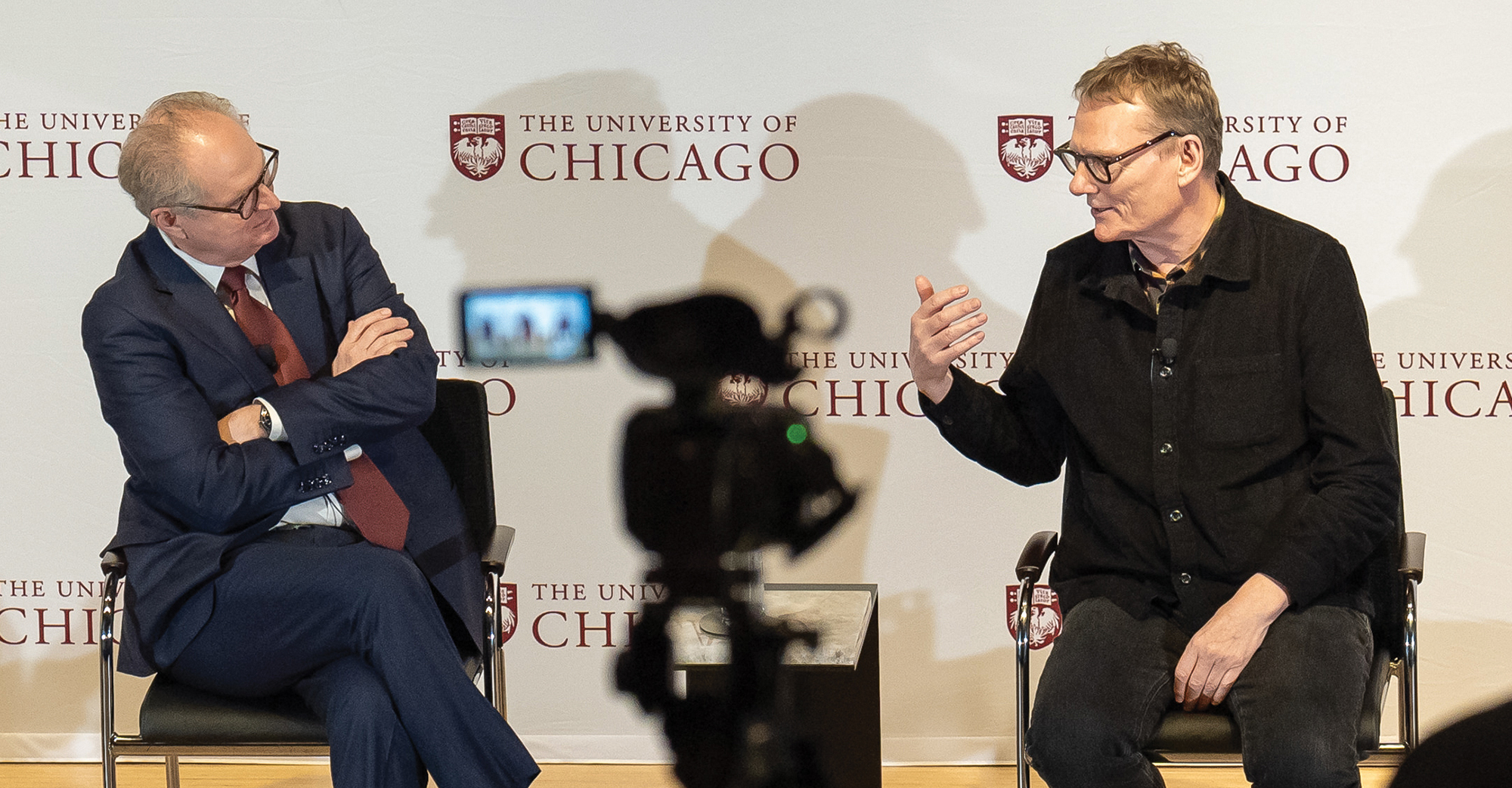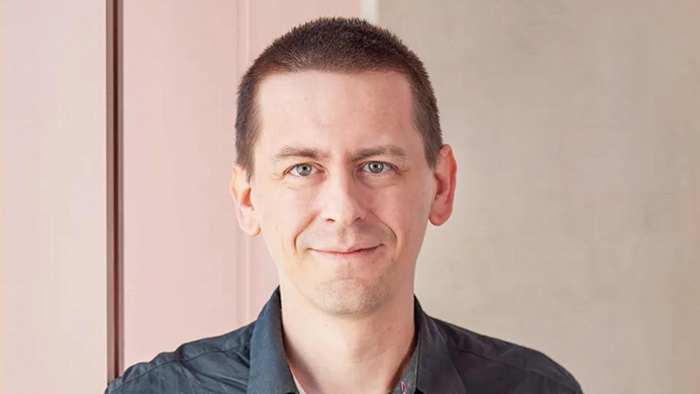
Two UChicagoans join a distinguished group of Nobel laureates.
The call that would change James A. Robinson’s life came early on the morning of October 14.
Or rather, the call that would have changed his life—if his phone hadn’t been off.
So when Robinson learned he had received the 2024 Sveriges Riksbank Prize in Economic Sciences in Memory of Alfred Nobel, the message came not from the Royal Swedish Academy of Sciences but from his wife, who had gotten a text from a friend.
“It hasn’t quite sunk in yet,” Robinson, the Reverend Dr. Richard L. Pearson Professor of Global Conflict Studies and University Professor in the Harris School of Public Policy and the Department of Political Science, said later that morning.
Robinson became the 101st Nobel laureate associated with the University of Chicago, a few days after alumnus John Jumper, SM’12, PhD’17, had become the 100th (see “Above the Fold,” below). Robinson was honored alongside his longtime collaborators, Daron Acemoglu and Simon Johnson, both of MIT, for their research into the societal institutions formed during colonization and how they affect prosperity. In their many jointly authored publications, the trio seeks to understand why global wealth disparities emerged and why they persist.
A member of the UChicago faculty since 2015, Robinson is Institute Director of The Pearson Institute for the Study and Resolution of Global Conflicts. He has taught and conducted fieldwork around the world: in Bolivia, Colombia, Haiti, the Democratic Republic of the Congo, Nigeria, Sierra Leone, and other countries. His publications include Economic Origins of Dictatorship and Democracy (Cambridge University Press, 2005); Why Nations Fail: The Origins of Power, Prosperity, and Poverty (Crown Publishers, 2012); and The Narrow Corridor: States, Societies, and the Fate of Liberty (Penguin, 2019), all coauthored with Acemoglu.
Robinson’s work, President Paul Alivisatos, AB’81, said at a press conference celebrating the University’s latest Nobel laureate, “is in a deep tradition of University of Chicago scholarship that helps us to see the world anew and to shape it to the betterment of humankind.”
Ethan Bueno de Mesquita, AB’96, dean of Harris Public Policy, added that Robinson and his collaborators “set the agenda for a generation of scholars who are seeking to understand how to create peace and prosperity where there was conflict and poverty.”
Acemoglu, Johnson, and Robinson are perhaps best known for their contention that the organization of a country’s economic and political institutions, rather than its geography or culture, determines its prosperity.
In particular, Robinson and his colleagues distinguish between two types of institutions—inclusive and extractive—that characterize richer and poorer countries, respectively. Inclusive institutions emphasize power sharing and equal access to advancement, while extractive ones concentrate opportunity in the hands of a select few. In many cases, the researchers argue, the presence of inclusive or extractive institutions is a legacy of the particular type of colonial rule that existed in that country.
Robinson and Acemoglu have also explored the relationship between liberty and prosperity and why democratic states with high degrees of personal liberty have emerged and endured in some places but not others. They attribute the persistence of liberty to a healthy balance of power between state and society. A country with too much state power risks tipping into authoritarianism; a country organized around competing social groups may become lawless. Liberty, in their view, emerges when state and society keep one another in check.
At the press conference, Robinson said that he looked forward to continuing his collaboration with Acemoglu and Johnson. “We’ve been working together for 30 years, more or less. We’re still good friends, still talking about ideas nonstop. I don’t think that’s going to change,” he said. “It’s a great recognition, and I just hope we can carry on doing the same thing.”
Above the fold

James A. Robinson was not the only Maroon Nobel laureate this year: John Jumper, SM’12, PhD’17, shared half of the 2024 Nobel Prize in Chemistry with artificial intelligence researcher Demis Hassabis for their work on protein structure prediction. (University of Washington professor David Baker received the other half of the prize.)
Proteins are the workhorses of our cells. Formed from spaghettilike strings of amino acids, they fold themselves into complex three-dimensional shapes. These structures are closely related to their functions. For example, collagen strengthens skin and connective tissue thanks to its ropelike form, while Y-shaped antibodies, or immunoglobulins, can efficiently trap invaders on their prongs. Knowing proteins’ shapes can help scientists develop new ways to treat disease.
But for years the only way researchers could see the structure of a protein was through laborious experimentation. Many researchers came to believe a better way was possible—perhaps, they reasoned, the structure of a protein could be predicted from its amino acid sequence.
Google DeepMind’s AlphaFold, created by Jumper and Hassabis, uses machine learning to do just that. The system is unusual among computational methods for its comparatively high degree of accuracy; its predictions often match protein structures observed via experimentation.
AlphaFold has revolutionized molecular biology. Today, thanks to the software, researchers have working predictions of the structure of almost all the roughly 20,000 proteins in the human body. “The expression ‘I alphafolded it’ is now something I hear almost every day,” one of Jumper’s advisers, Tobin R. Sosnick, William B. Graham Professor of Biochemistry and Molecular Biology, wrote in 2023.
“It’s absolutely extraordinary,” Jumper said of receiving the Nobel Prize. “I’ve been a computational biologist a long time, and I like to say in talks: We need this to work. We need computation to solve the problems of biology, and I just love that it’s starting to work.”
